Brigitte Krause
Nascimento : 1929-03-09, Berlin, Germany
Morte : 2007-04-29

Köchin Eichler
On the way to summer camp, eleven-year-old Lena develops a crush on Wolfgang, but Antonia is interested in him too. Although Lena and Wolfgang grow closer to each other, camp director Eichler disapproves of their relationship and tries to split them up by assigning them to different groups. The conflicts escalate until one night, during a disco event, Lena suddenly runs away.
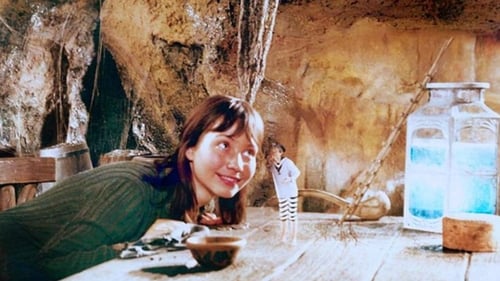
vornehme Dame
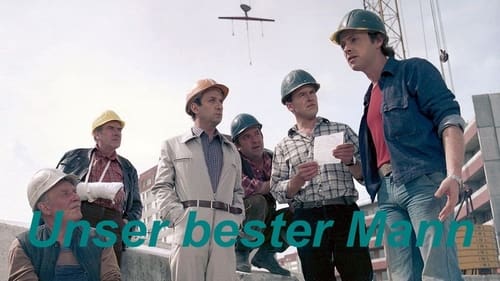
Frau Hielscher
The main character Otto, the "best man", is a copy of the illustrious Mister Bean. He takes on an apprenticeship as a building-worker, which makes him a member of a building brigade. At the same time Otto tries to start a love affair, which he handles even clumsier. Never the less Otto makes progress with the lady in question, a single mother, who apparently doesn't mind. Actually he wanted her sister, but a retired Leninist party member changes his mind. This gives him the courage to persevere in his work, albeit with the helping hand of the obligatory retired party member. And behold, in the end Otto invents a new method of building, which saves the brigade many hours of work.

Miss Perkins

Elsa Joß
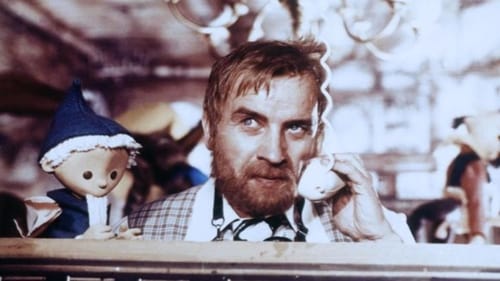
Kritikerin

Ursula 'Post-Frieda' Behnke
The film describes the activity of an ABV of the People's Police in its section in East Berlin. A mixture of “positive” characters from the beginning, the extensively staged “owl”, who is introduced as a criminal and over the course of time, especially due to the influence of the ABV, develops into a good citizen, and incorrigible characters, with whom the ABV fails with its extensive attempts at rehabilitation and who are arrested after having committed again offenses.

Heimleiterin Frau Sievert

Berta Mattusche
A socialist story of "atoms for peace" and compulsory labor in an East German uranium mine under Soviet control.

Mutter Walcher
Günter Walcher, 40-years-old, is a hardworking, apolitical West German businessman caught in a moral conflict. He is offered a promotion to become the head of a division—on the condition that he find a reason to fire Zacharias, a communist and the work council chairman.

11. Fee
On the occasion of their daughter's birth, the king and queen give a lavish feast. Among the guests are twelve fairies who endow the infant in the cradle with all good qualities. As the king loathes diligence, he does not invite the thirteenth fairy - the fairy of diligence. A captain lets her slip into the castle and she casts a spell on Sleeping Beauty, wishing death upon her. The twelfth fairy transforms and mitigates the spell. On the day she turns fifteen, the princess is to sink into a hundred-year sleep after pricking her finger on a spindle.

East German television film.

Film by Rainer Bär.

Lehrerin Hellwig
Monika and Johannes are married. With increasing frequency, their son Manni becomes the focus of their arguments. Since the two cannot agree to a compromise, they decide to break up. The ten-year-old Manni is supposed to spend four weeks with Monika followed by four weeks with Johannes on an alternating basis. They want to prove to each other who has the better parenting skills. The plan fails, however, because Manni is very good at playing his parents off against each other. When Monika and Johannes finally see through their son’s game, they realize that their way of life does not lead to better parenting and they conclude that good parenting can only be achieved if they work together.

Jenny
As American settlers encroach on the lands of the Lakota people, Tokei-ihto witnesses the murder of his father at the hands of Red Fox, who wanted information on where the tribe finds its gold. Two years later, at the height of the Great Sioux War, Tokei-ihto and Red Fox meet again.

Maria
Based upon Shakespeare′s "Twelfth Night", the movie tells the story of the Duke of Illyria who is in love with the Countess Olivia. Olivia, however, keeps eluding him. When the Duke sends her a page to bring her a message, Olivia falls in love with the messenger who is in fact a woman called Viola. After she was shipwrecked on the shores of Illyria, Viola assumed the role of her missing brother. She cannot return Olivia′s love because she, in turn, adores the Duke.


Kirsten Köster, Journalistin
August 1961. The former Foreign Legionnaire, King, has collected a gang of hooligans, with whom he creates mischief in the GDR. After some careless work on a construction site, an event during which two people lose their lives, they move to a campsite on the Baltic Sea. With sputtering mopeds, loud radios, and occasional outbursts, the gang makes the vacationers' lives living hell. Unfortunately for them, Lieutenant Czernik discovers the connection between them and the accident at the construction site. To stop them from fleeing to West Berlin, Lieutenant Czernik and the police need to arrest them, one at a time, with King as the last.


Lore Fiedler
Mauritius Halbermann, nicknamed "Mauts", works as an advertising manager for Gravo-Druck, a state-owned print company. Mauts, a man obsessed with his work, incessantly percolates with marvelous ideas - and now that he has once again come up with another brilliant idea, he naturally wants to present his proposal to his boss. As it happens, his supervisor along with his entire family and some of Mauts's colleagues - including Lore who Mauts secretly fancies - have gone on a holiday trip.

Rita Wolf, Schlagersängerin
Co-pilot Horst Schubert is a braggart and a true Don Juan. Thus, he tells young Ilse that he is in fact an "aircraft commander". This assertion brings about an embarrassing situation, for he suddenly meets her onboard his new work place, an IL-14 charter plane where Ilse acts as a stewardess. It gets worse, however: During a stop in Varna the police appear because Horst’s former lover Madelon has vanished. At home, meanwhile, his landlady has her hands full with her lodger’s current and former playmates. Ilse decides to put an end to this mixup and since the dull captain of the plane, Richard, makes no move to confront his co-pilot about his unstable private life, the smart stewardess appeals to the rest of the crew to help her teach Horst a few lessons in love.

Hannelore Puchmann

Barbara Wendt

Betty Bartuscheck
This film continues the story of radio operator Ludwig Bartuschek from “The Sailor’s Song”. Near the end of the Weimar Republic, Bartuschek (Erwin Geschonneck) is working as a mechanic in the Sperber airplane plant. Director Dehringer offers him the opportunity to train as an airplane constructor if he is willing to give up his communist beliefs under oath. Bartuschek will not allow himself to be bought and instead joins the underground resistance movement.

Thea
Two young building workers are more interested in girls than their work; complications ensue at home.

Silvia

A sociohistorical drama about the construction of the Simplon-tunnel: A conflict develops when German workers want to strike and fight for better working conditions while Italian workers simply want to earn money and provide for their families.

Renate

Lotti

Teacher
Fiete is nine years old and loves fishing. Each afternoon he spends hours sitting at a creek in his village. On one of these afternoons the peace and quiet is suddenly disturbed when two rowdies catch and kill a neighbor’s drake. The boys bribe Fiete to keep quiet about the incident, and he agrees out of fear. However, Fiete feels uneasy about keeping his secret, especially when the neighbor’s daughter starts desperately searching for the drake.

Anna Hunzele
Actually, the Düsseldorf musician and composer Peter Weselin only wanted to spend his placid vacation with his uncle in the Vogtland village of Klingenthal. But in the city famous for its manufacture of musical instruments, the annual music festival is about to start. For the festival, the accordion factory asks Peter for a large composition for the symphonic orchestra. Furthermore, cute Anna asks him to write a pop song for her youth dance band. Thus, Peter finds no rest during his vacation.
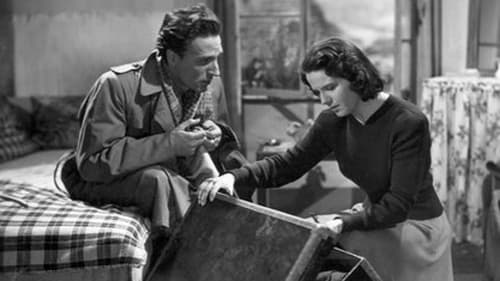
Brigitte Dulz
A young married couple - both of them actors - work in the divided city of Berlin. Agnes, the young woman, is on location in East Berlin, and Jochen, her husband, works at the Westend Theater in West Berlin. This young marriage is in danger of breaking up as they vehemently defend their diametrically opposed views. The way they see politics, art and the world differs extremely.

Inge Marten
After Jochen saves police officer Erich's life, the two men become close friends and Erich helps Jochen get a job working for Berlin's local train system. But Jochen falls into the hands of the beautiful West Berlin agent Ellen, who convinces him to participate in acts of sabotage against the trains. All of a sudden, Jochen is making a lot more money and even Erich's former girlfriend Inge becomes interested in him. But everything begins to unravel when Erich observes his friend's illegal activity on one of his nightly rounds.

"Kaetchen" Scholz
Based on the records of the Nuremberg trial of the chemical giant IG Farben; a story about the collaboration between international corporations and Nazi scientists, whose research contributed to the death of millions.
The chemist Dr. Hans Scholz lives through a tortuous political transformation and maturation process. Eventually, he adopts political neutrality and closes his eyes to the fact that the poison being produced in his factory is being used in the extermination camps. Standing before the judges at the Nuremberg trials, he must face the fact that he is implicated in the deaths of millions in the gas chambers of the concentration camps.
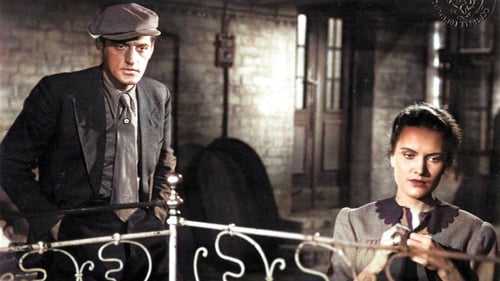
Inge
The mechanic Behnke wants to join the Nazi party to secure a good living. However, after his Jewish neighbors have been taken away, he changes his views. Trying to remain "a non-political man," he withdraws from reality and becomes a Nazis laborer.

A moving saga focusing on the women in a family that spans three generations and almost 70 years of German history, from the Wilhelmine period through the end of WWII. This film shows that it takes a combination of hard work, political consciousness and family work in tandem to face the tragedies of war, economic hardship and death.





















